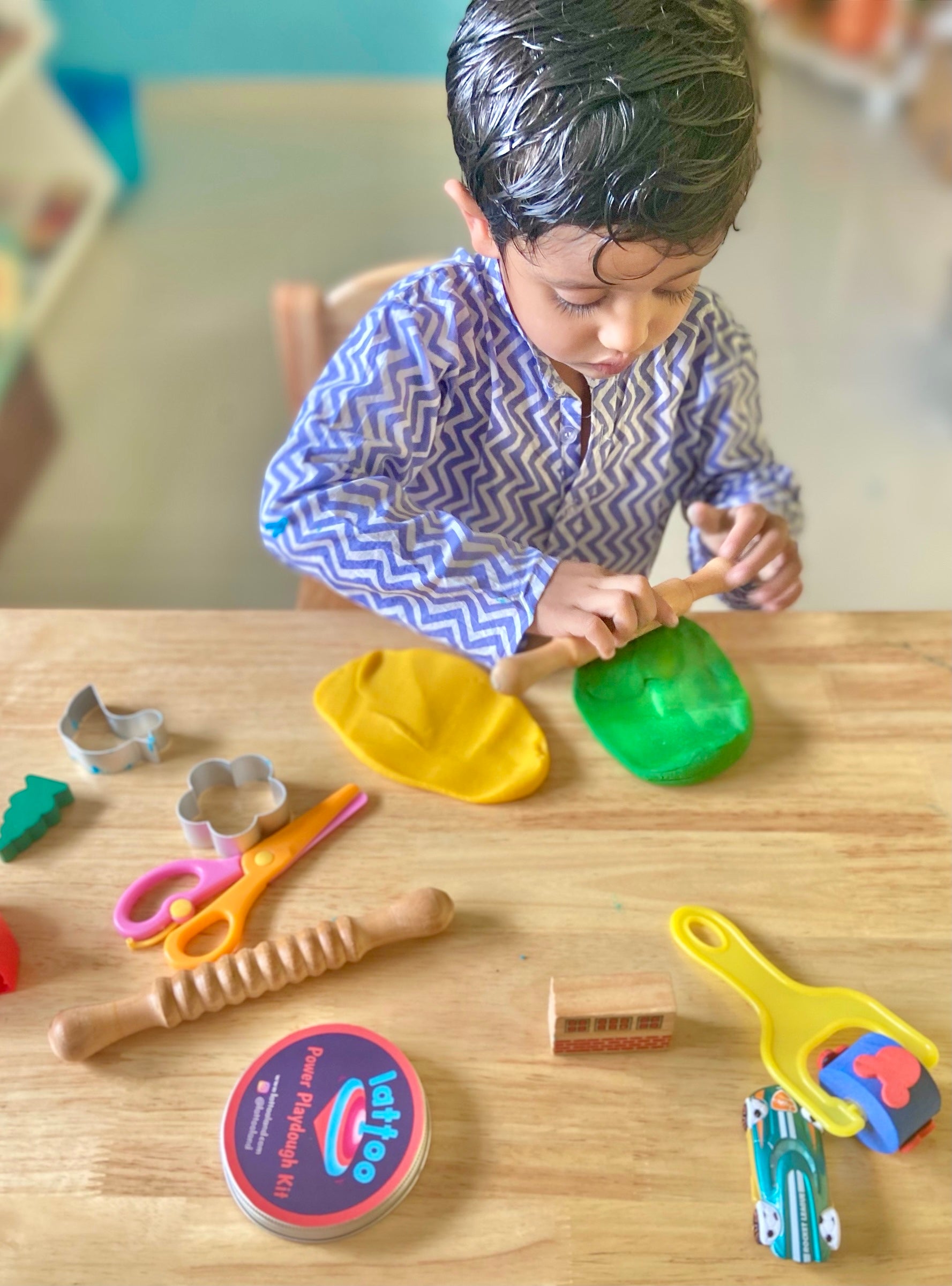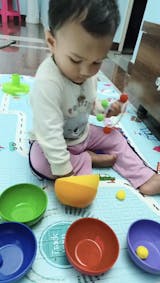Why Independent Play Matters for Your Baby’s Development
As parents, we love watching our babies laugh, explore, and learn during playtime. We often imagine ourselves right there with them singing songs, building towers, or shaking rattles. When you think of playtime with your baby, you might imagine colorful toys, giggles, and your active involvement. But did you know that independent play where your little one explores and plays on their own in a safe space can be equally valuable for their growth. Far from being “just play,” these moments help shape essential skills for future learning, creativity, and confidence. Independent play sparks imagination, strengthens problem-solving abilities, boosts self-assurance, and supports overall healthy development.
In this article, we’ll explore what independent play is, why it matters, and how you can encourage it in your daily routine.
What is Independent Play?
Independent play is the time your baby spends exploring, experimenting, and playing without continuous guidance from a parent or caregiver. It could be as simple as stacking blocks, exploring textures, or moving toy cars around. This doesn’t mean leaving them unattended, but rather giving them the space to explore on their own while you’re nearby for safety.
Examples include:
- A baby sorting cups while you fold laundry nearby
- A toddler flipping through a picture book on their own
- A child engaging with sensory toys in a safe play.
Benefits of Independent Play for Babies
-
Builds Confidence & Independence
When babies explore on their own, they learn that they are capable of making choices, solving small problems, and creating their own fun. This builds a strong foundation for self-reliance later in life. -
Encourages Creativity & Imagination
Without constant instruction, babies use their imagination to create new games, stories, and uses for their toys. A simple sensory play mat, for example, can become a magical world of textures and colors. -
Develops Problem-Solving Skills
When a toy falls, gets stuck, or doesn’t work the way they expect, babies learn to experiment and figure it out. This trial-and-error process sharpens cognitive abilities. -
Supports Emotional Regulation
Independent play teaches babies patience and self-soothing skills. They learn that they can enjoy themselves even without constant interaction. -
Improves Motor Skills
Activities like stacking, grasping, and moving around during play improve fine and gross motor skills, helping babies reach developmental milestones. -
Improves Focus and Attention Span
Independent play encourages babies to stay engaged with one activity for longer periods. Over time, this strengthens their ability to concentrate, a skill that will benefit them in school and beyond.
-
Encourages Emotional Regulation
By figuring out how to entertain themselves, babies learn patience and resilience. It also gives them the opportunity to process feelings and develop coping skills.
How to Encourage Independent Play
-
Start Small
Begin with short sessions just 5 to 10 minutes while you stay nearby. Gradually increase the time as your baby becomes comfortable. -
Create a Safe Play Environment
Set up a baby-safe zone with age-appropriate toys like stacking blocks, soft rattles, and sensory mats. -
Offer Open-Ended Toys
Choose toys that can be used in multiple ways like sensory rice kits, wooden blocks, or play silks to spark creativity. -
Avoid Over-Intervening
Resist the urge to direct play. Let your baby lead and explore freely. -
Use Sensory Play
Sensory activities like textured mats, colored pasta, or dough are perfect for independent play as they engage touch, sight, and sound. -
Be Present, but Hands-Off
Sit nearby to supervise without actively directing the play.
Best Toys & Activities for Independent Play for Babies and Toddlers
-
Sensory Bins
Fill a shallow container with safe, colorful sensory bin fillers such as chickpeas, rice, or pasta, allowing your baby to explore different textures and colors through touch and play.
-
Stacking or Sorting Cups
Babies love stacking cups into towers and then knocking them down a fun activity that helps develop fine motor skills, hand-eye coordination, and problem-solving abilities. -
Clay Dough Play
Give kids soft, taste-safe clay dough so they can shape, squish, and create whatever their imagination inspires. -
Shape Sorters
Encourage hand-eye coordination and problem-solving with age-appropriate shape sorters. -
Soft Sensory Play Mat Exploration
A sensory play mat with varied textures, flaps, and bright colors keeps babies engaged, stimulates their senses, and supports early developmental skills. -
Sensory Ball Roll Games
Place a soft, textured sensory ball in front of your baby for them to roll, chase, or crawl after a fun way to boost motor skills and coordination. -
Pretend Cooking with Play Food
Toddlers especially love pretend cooking play kitchens or soft food sets encourage imagination. -
Wooden Geoboard
A chunky wooden geoboard with large, easy-to-hold pieces encourages problem-solving, creativity, and strengthens fine motor skills. -
Treasure Sensory Basket
Fill a basket with a mix of safe household objects (wooden spoon, silicone tongs, soft pompoms ) for open-ended exploration.
The Parent’s Role in Independent Play
Independent play doesn’t mean neglecting your baby it means balancing interaction and independence. Your role is to provide a safe environment, offer the right tools, and show encouragement. By doing so, you’re giving your child one of the most valuable gifts: the ability to enjoy their own company and grow at their own pace. Independent play is more than just a way to keep your little one occupied it’s a cornerstone of healthy development. From boosting creativity to building life skills, the benefits last well beyond the baby years. So, the next time your child plays quietly on their own, remember they’re not “just playing”; they’re learning, growing, and becoming more confident every minute.














